Revisiting a past trip to get excited for the future
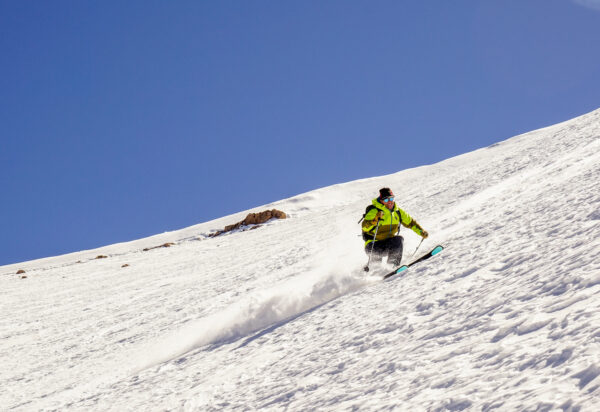
It’s hard to believe we’ve been living with COVID-19 for two years. Has it been that long? I think the global pandemic has warped my sense of time.
It feels like a lifetime ago that we were beginning in 2020 with our everyday routines, our busy schedules, and something that I’ve missed: adventure travel.
Lately, I’ve been feeling cautiously optimistic that we’re moving past this period of uncertainty and unwelcome disruptions. I know better than to declare the pandemic to be behind us, but I am hopeful that moment is not far off.
In the meantime, I find myself looking back on the period that preceded COVID-19. When I reflect on those fun pre-pandemic memories, it makes me excited to get back to normal and fired up for what might lie ahead.
In March 2020, as the virus was spreading like wildfire around the globe, we were wrapping up a ski trip to Morocco and the Atlas Mountains, one of the most memorable mountain adventures of my life.
Located in the far northwest corner of Africa, the Atlas Mountains stretch across Morocco in an east-northeast direction for 1,600 miles into neighboring Algeria and Tunisia. This mountain range separates the Mediterranean and Atlantic coastlines from the nearby Sahara Desert.
The region of mountains with the highest, snowiest summits is referred to as the High Atlas. Contained with them are several peaks greater than 4,000 meters in elevation (just above 13,000 feet).
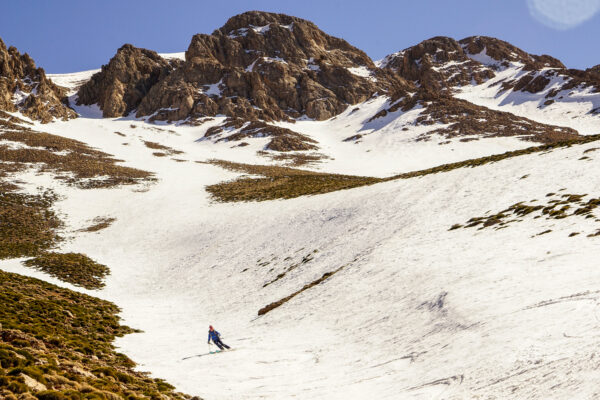
Not only are those mountains high, but they also receive a good amount of snow. And as we all know, when you have mountains and snow, you can ski.
Moroccans are familiar with the sport. They have a few of their own ski areas, including Oukaimeden, with six lifts and 2,000 feet of vertical gain. Backcountry skiing and ski mountaineering in Morocco are also growing in popularity.
Despite increasingly dire headlines regarding the spread of COVID worldwide, Christy and I and our friend and ski partner Chris Davenport packed up our ski gear and headed to Marrakech on March 1, 2020.
We thought we could climb and ski some new mountains on a different continent and gain a bit of cultural experience. Chris had an additional motive— after a lifetime of skiing, he had carved turns on every continent except Africa. This trip would allow him to check that final box.
Like much of the world, Morocco is experiencing changes in climate and significant variations in annual snowfall. By some estimates, precipitation in the High Atlas has decreased by 60% from historical averages. The average annual temperature has already gone up more than the 1.5-degrees Celsius goal set forth by the Paris Climate Accord.
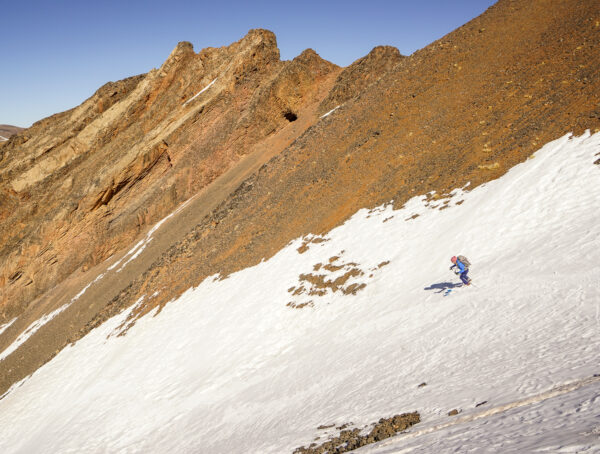
Like many mountain communities that depend on snowfall for water and their local economy, Moroccans hope these trends are outliers rather than the new normal. Time will tell.
The winter of 2020 was warm and dry in the High Atlas. But we weren’t heading there solely in search of deep powder. We wanted to experience skiing in Africa and explore the High Atlas Mountains. Even if it was a lean season, we figured there’s almost always snow somewhere to ski. We just had to find it.
Lucky for us, we had a friend who could help us with that. Aaron Gould-Kavet is a Vermonter living in Colorado who often spends the winter seasons in Morocco. He’s been exploring the High Atlas on skis for years. He has an immense appreciation for its people, culture, and mountains— particularly the native Berber communities that have occupied the Atlas Mountains for more than 10,000 years.
We departed Colorado on March 1 and made our way to Marrakech. After a night in the old city, Aaron met us and we headed northeast to a 12,000 foot mountain called Jbel Ayyachi. The term “Jbel” is Arabic for hill or mountain and is coincidentally where El Jebel gets its name.
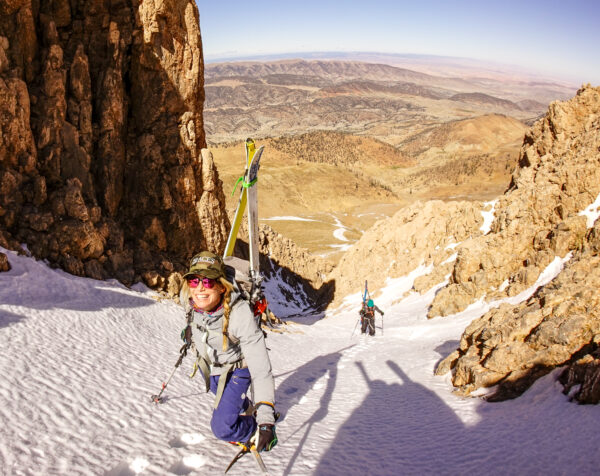
We planned to stay with Aaron’s friend and guide, Mohammed, who operates a guesthouse, known locally as a gite— pronounced jeet. We had dinner with him and his family and got situated for the next few days. The cultural experience had begun.
The next day it was time to ski, and the experience quickly diverged from how we do things in Colorado. Aaron had arranged to meet a local muleteer who loaded our skis, boots, and backpacks on his mule. So without any gear to carry, we all began walking up the dry valley towards the snow.
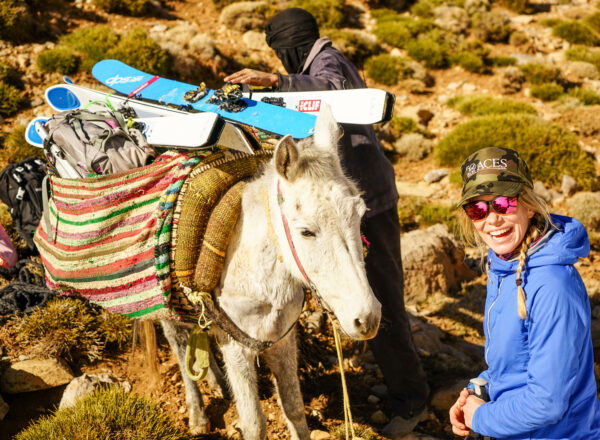
Once we reached the snow, we put on our boots and began skinning. There were countless ski lines ahead of us. We looked at the options and picked a route of ascent. As the slope steepened, we put our skis on our backs and we boot-packed up the mountain under the warm African sun.
Reaching the summit felt much like it always does, but the surrounding views of the arid landscape continually reminded us that we weren’t in Colorado anymore. As we got ready to descend, we congratulated Chris for successfully skiing on all seven continents of the world.
Following Aaron’s lead, we skied down into a different valley than the one we ascended, navigating variable spring conditions that improved to corn snow as we descended. The setting and remoteness felt different than anywhere else we had skied before. After a couple thousand vertical feet, we reached the end of the snow and Mohammed was there with the mule and a full Moroccan lunch spread.
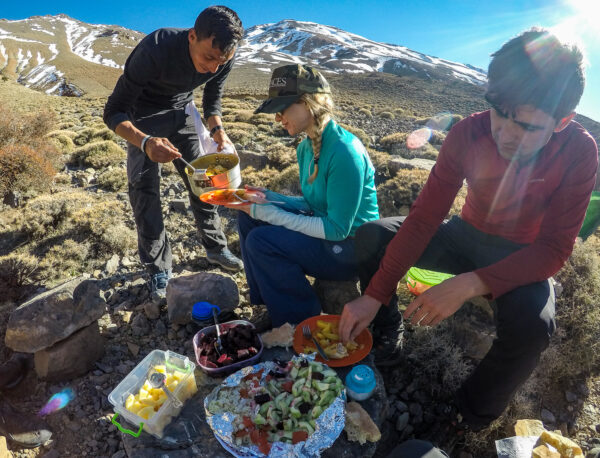
We skied several high Moroccan summits for the next few days, following the same routine. Load the mules, hike to the snow, climb and ski, finish with a huge lunch— it was a pretty civilized way to go ski mountaineering.
Each day ended at the gite in the tiny Berber village, where we were showered with hospitality and immersed in tradition and stories from the locals.
The evening after our last day of skiing, Mohammed and his family organized a big party. They prepared an incredible dinner of various tajines, couscous, and salads. The women pulled Christy aside for an extreme makeover, Berber-style. She arrived to the party in the house mother’s Berber wedding dress and jewelry, and the neighbors came over to join in song and dance festivities.
The following morning we departed the small village after several days of skiing and an overload of culture. The experience was nothing short of amazing. We were able to explore and ski in this new part of the world, spend real time with the local Berbers, partake in their unique rituals, and see the simplicity of their lives and the happiness they all share. It was unforgettable.
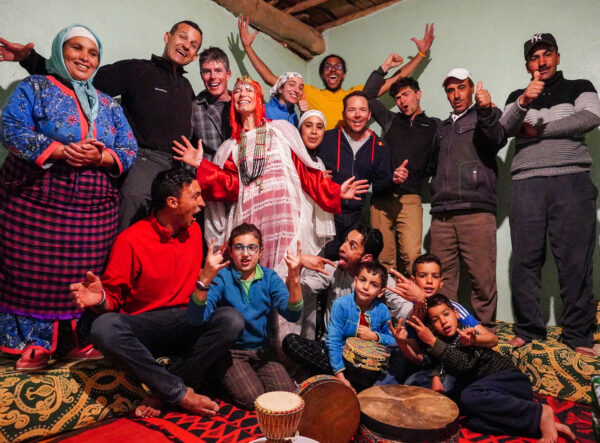
We may have gone to Morocco to climb and ski some mountains, and we succeeded in that. But it was the people we met, the new friends we made, and the cultural experience along the way that left the real impression.
The three of us had barely processed the experience when we returned to Aspen, confronting the new pandemic world. Now, two years later, I look back on that trip with fondness. And as I reminisce, it gets me excited to put this COVID chapter behind us and hopefully put some mountain adventures back on the calendar.

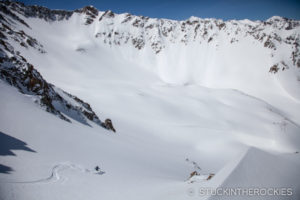
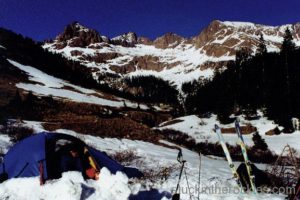
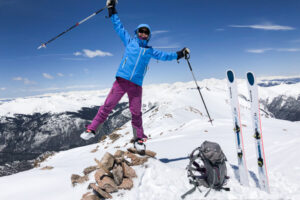
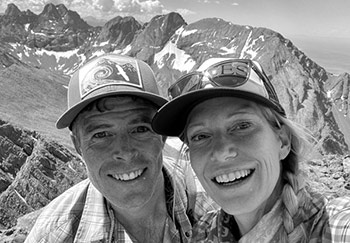






Leave a Reply